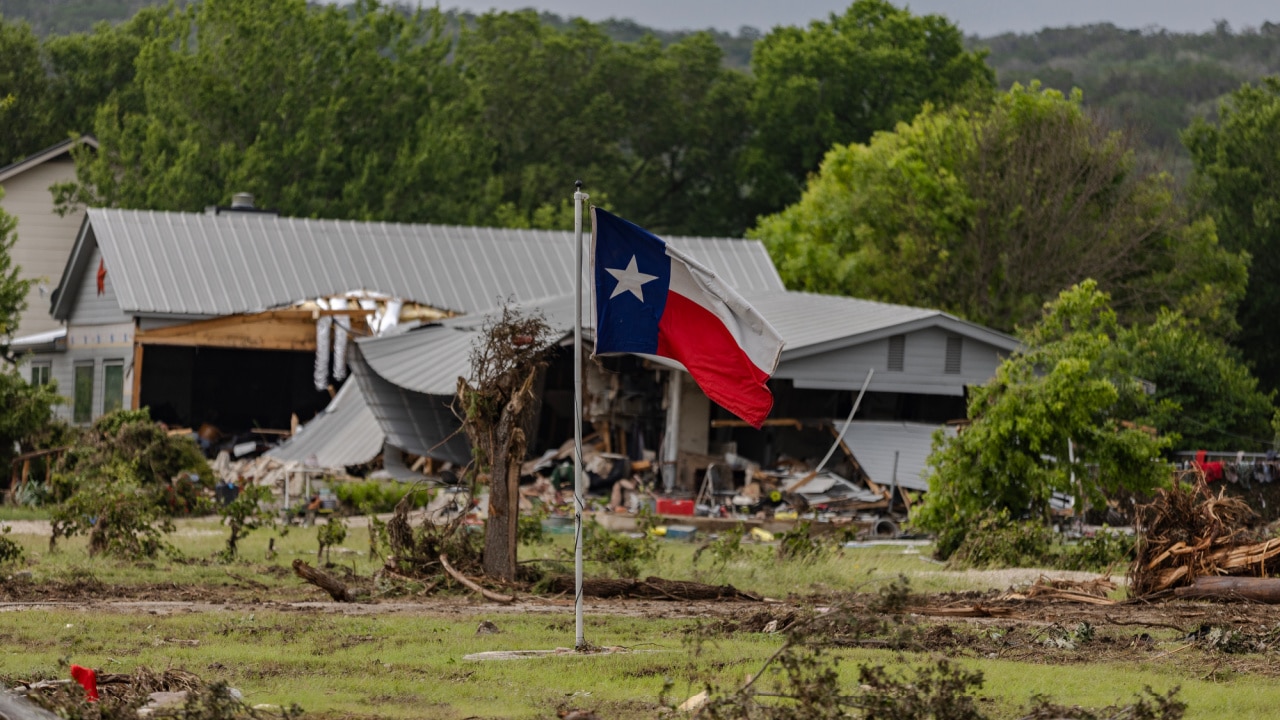Hate Crimes Towards Latinos Spiked in 2019; Overall Highest They’ve Been in a Decade
Photo by Mario Tama/Getty Images
In April of 2019, Connie and Michelle Pineda moved into the quiet suburban neighborhood of Lake Forest in Louisville, Kentucky. At first, their lives were peaceful and uneventful. But soon, the family began to receive a barrage of mysterious harassment.
First, it was the odd chemical burns they found on their front lawn–marks that seemed man-made. Then, some neighborhood kids called the Pineda children a racial slur (the Pinedas are a mixed Latino-Filipino family).
Soon, Connie and Michelle Pineda were waking up to a bright orange swastika accompanied by the n-word spray painted on their driveway.

The Pinedas checked their security cameras and discovered the culprit: their neighbor, 52-year-old Suzanne Craft. The Pinedas reported Craft to the authorities, and she was charged with criminal mischief and sentenced to seven days in jail. But that hasn’t stopped her from continuing the harassment. A bag of bullets recently appeared on the Pinedas’ front lawn. It came with a note that read: Get out.
“They live in fear,” the Pinedas’ attorney Vanessa Cantley told The Washington Post. “They have five children and three of them are old enough to know exactly what’s happening. They won’t go out and play in the yard. They won’t go out to walk the neighborhood. They are basically prisoners in their own home. The whole family sleeps in the living room, where there are no windows, because they just don’t know what this woman is capable of.”

Unfortunately, stories like this are becoming more and more common in the United States.
The FBI released their annual report detailing hate crime statistics and the data showed that hate crimes have reached their highest level in more than a decade. The report also showed the highest amount of hate-motivated killing since the FBI began collected this type of data in the early 1990s.
According to the FBI report, there were 51 hate-motivated killings in 2019. Twenty-two of those murders were from the El Paso Shooting.
In August of 2019, a gunman open-fired on patrons at a Wal-Mart in El Paso, Texas. It was later discovered that the shooting was racially-motivated. Previous to his killing spree, the shooter wrote on Facebook that Mexicans were “invading” the United States.
Hate crimes against Latinos spiked to 527 in 2019, up from 485 in 2018. Many critics are attributing the rise in hate crimes to the divisive culture we live in–much of which is fueled by President Trump’s racist anti-Latino rhetoric. “When the president calls [Latinos] rapists and criminals, what do you think is gonna happen?” said one Twitter user in response to the news. “His words have meaning to a lot of people and their actions are harmful for our society.”




